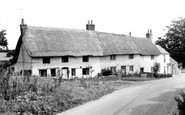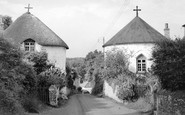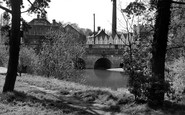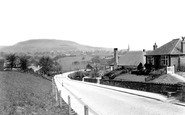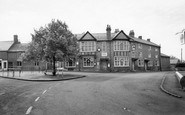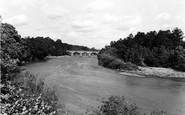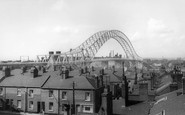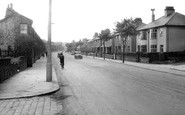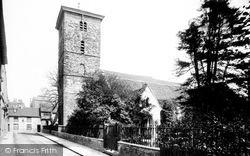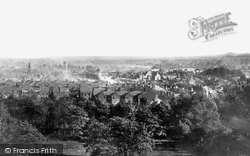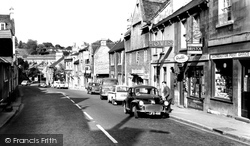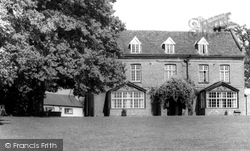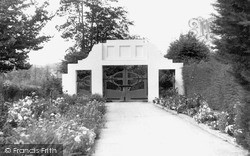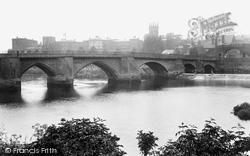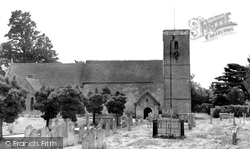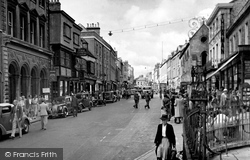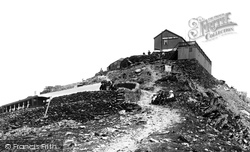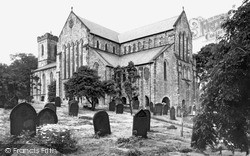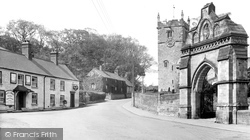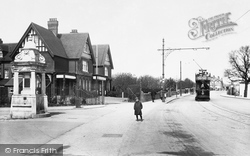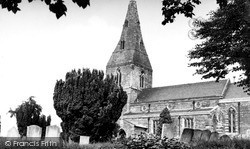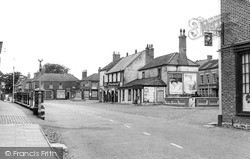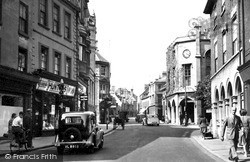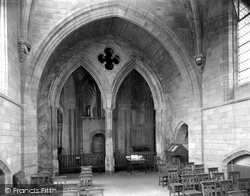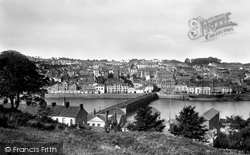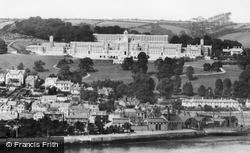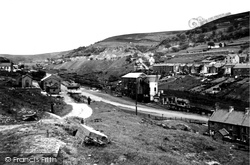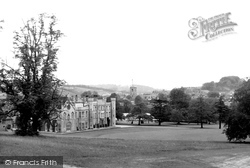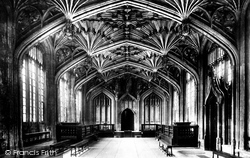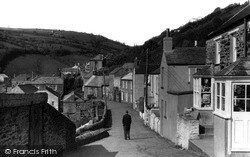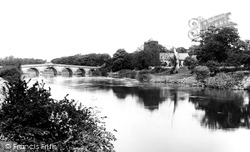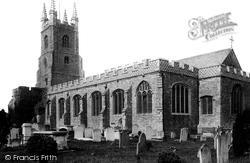Places
Sorry, no places were found that related to your search.
Photos
5 photos found. Showing results 201 to 5.
Maps
83 maps found.
Books
Sorry, no books were found that related to your search.
Memories
1,128 memories found. Showing results 101 to 110.
No 10
My name's David Meacham - When I was very small I used to live in the cottage on the right - Number 10 Bremhill. It was a wonderful place to be a child - few cars then of course - and the freedom to roam the village without any fear. The rooms ...Read more
A memory of Bremhill in 1962 by
St Marys Church
We lived in an upstairs flat in South Ealing. The tube railway line ran behind our flat, and beyond that, allotments. We also had a good view of St. Mary's church. It was wonderful to hear the bells ring on Sunday mornings. I ...Read more
A memory of South Acton in 1960 by
My Fathers Birthplace.
My father Cornelius Henry Johns (Naily to everyone who knew him) was born in the little Round House on the left of the photo. He was the youngest of a large family, and there were 11 people living there in 1899. They then moved to ...Read more
A memory of Veryan in 1890 by
Fishing
Favorite spot for fishing as a young boy was under the arches. We paddled out, risking cutting our feet on broken glass, which happened the odd time. Caught my biggest roach ever...but it got away! True story.
A memory of Chippenham in 1950 by
Brookhouse
I used to live at Brookhouse with my parents, great aunt and maternal grand mother. Brookhouse was split into 3 houses at the time (131, 133, 135 Holcolme Road). My grandfather (Thomas Lomax) visited at Christmases and holidays. My ...Read more
A memory of Tottington in 1955 by
Hilly Fields
Situated at the top of our road, as young children Hilly Fields was something quite magical. During winter time we would trek our home made sledges over to toboggan hill and hurtle down to the brook at the bottom of the hill at breakneck ...Read more
A memory of Enfield in 1950 by
The Nag''s Head
One didn't have to travel to London in the past to watch pro bands plying their trade. The Nag's Head public house was a much attended venue during the late 1960s and early 1970s for watching many of the (what was then known as) ...Read more
A memory of Wollaston in 1969 by
George Maddison
thanks to this photograpgh i have identified a photograph of my late father taken in 1954 we all thought it was the hexham bridge but now know it is the bywell bridge by the number and type of arches over the river thanks philip maddison
A memory of Bywell in 1954 by
Building The Bridge
I was sat in my classroom at the parish school in church street and I had just put away my plastic counters after a hard maths lesson ,I was only 5 ( and 1+1 was very hard)my teachers name was mrs oats she was lovely and as I sat ...Read more
A memory of Runcorn in 1961 by
Childhood On Osborne Terrace
In 1949 the houses on Osborne Terrace were just being built, as soon as they were coming available the council were moving people in, our family moved into no 21. I was 4 years old. It was a lovely place then, nice and ...Read more
A memory of Stacksteads in 1950 by
Captions
1,233 captions found. Showing results 241 to 264.
Like many of the town's churches, it is built from salvage from the Roman town: bricks for arches, quoins and bands, and rubble and septaria (inferior stone nodules) for the rest.
Of the priory, however, little remained even in 1900, save for the remains of the cloisters and a stone arch.
This follows the course of a much older road, the Roman 'Fosse Way', which runs from the 'colonia' of Lincoln to Axminster in Devon, built as a military road around 47 AD.
Two of its three arches were destroyed during the Civil War, and a replacement now stands there. There are many lovely old buildings in the vicinity, such as Bank House.
The entrance arch, with its green gates, was demolished in the 1980s to allow access for lorries building the new leisure centre.
The old bridge with its seven irregular arches dates from the late 13th century, and was partially rebuilt in 1347-58.
The long narrow nave has a fine Norman doorway, and there is a Norman arch in the south wall which led to the priory.
The ornate arched building on the left is the YMCA.
There are several viaducts on the railway; one is 500ft long, and has 14 arches each with a 30ft span.
In 1908 the east end of the chancel was extended and the transepts added; the gradient of the site was such that the architect, Temple-Moore, designed a structure supported on a round-arched undercroft
On the right are the tower of All Saint's Church and the Admiral's Arch.
A much changed view: this shows the old Caversham Hotel on the Reading approaches to Caversham Bridge, with the electric tram No.9 at its terminus.
There are several Norman features inside including the south doorway and chancel arch. The tower is late 13th-century and the spire has chamfers which reach halfway up.
The petrol station in the centre of the market place was the Town Hall with an open arcaded ground floor, the arches now glazed. It dates from 1764, and surely deserved a better fate.
Here, where South Gate meets North Gate, are the town's finest commercial buildings, such as the HSBC bank of 1903 on the left and the Sessions House of 1830 in Gothick style with a pointed arched ground
The twin arches, with the quatrefoil over, are all that remain of the 13th-century Lady Chapel.
The bridge, with its many arches, each of a different span, is 13th-century.
This masterpiece of grand architecture was built (1902-05) by Sir Aston Webb, who was also responsible for the eastern façade of Buckingham Palace and for Admiralty Arch, both in London.
This area, however, was already occupied at a much earlier date - a Bronze Age axe was found at a settlement at Llanerch Padarn higher up the valley. The colliery finally closed in 1982.
From the arches of the Georgian Guildhall the camera looks down White Hart Street. The buildings on the right replace medieval market place encroachment.
The photograph depicts the school's magnificent vaulted roof, which consists of four arches and is beautifully decorated with figures and coats of arms.
At the far end of the lane is the Portloe United Church, and just this side of it are the two arched openings of the old village limekiln.
The seven-arched bridge is made from sandstone. It was designed by John Gwynne, a founder member of the Royal Academy, and constructed in 1771.
It dates from Norman times, but parts of an older arch, containing some Roman bricks, may be seen in the nave. The large west tower was built in the late 15th century.
Places (0)
Photos (5)
Memories (1128)
Books (0)
Maps (83)



